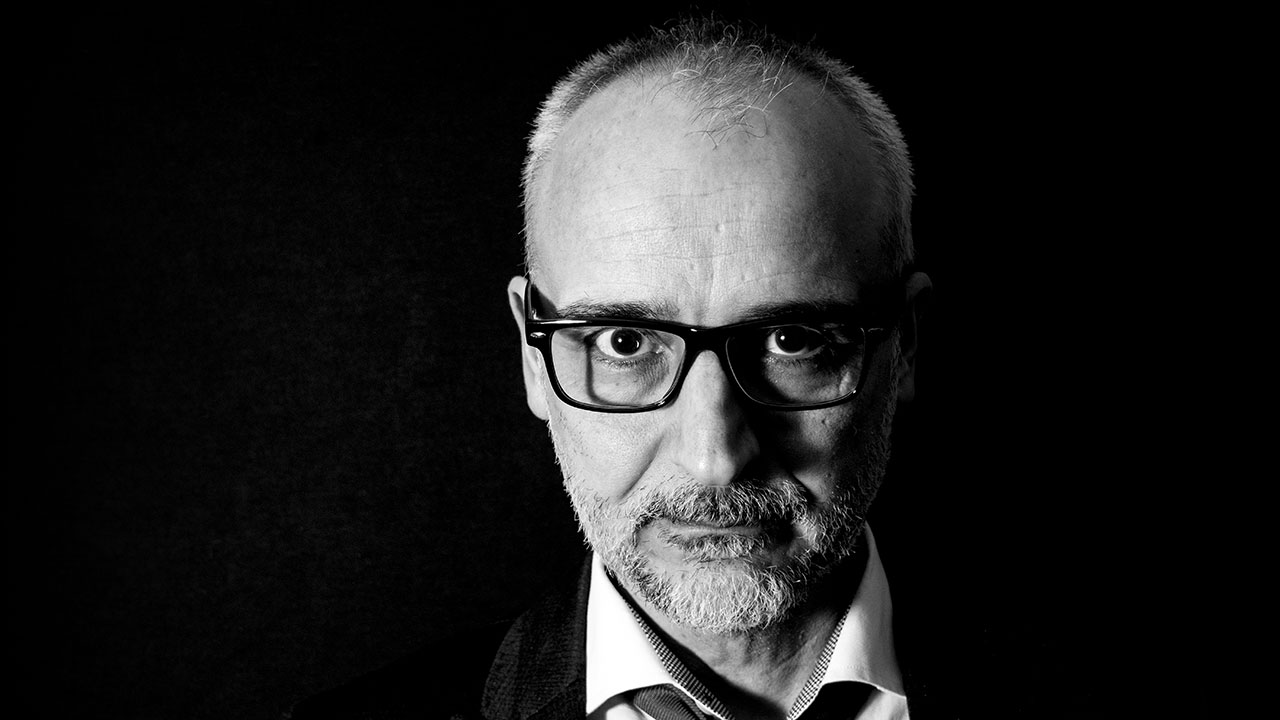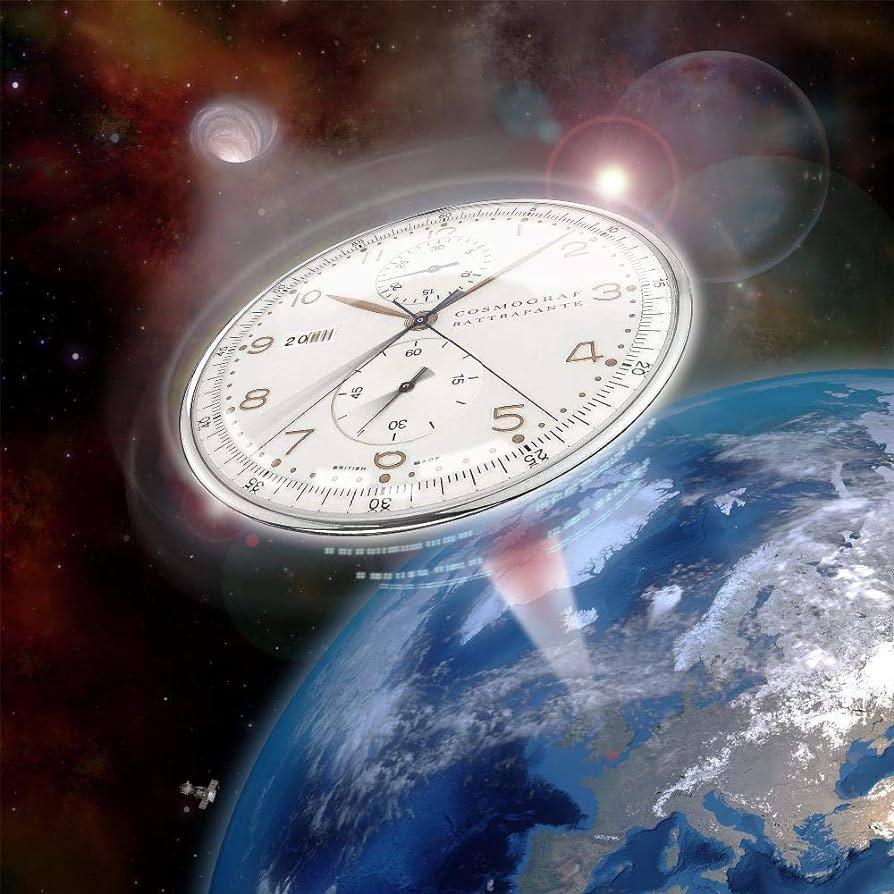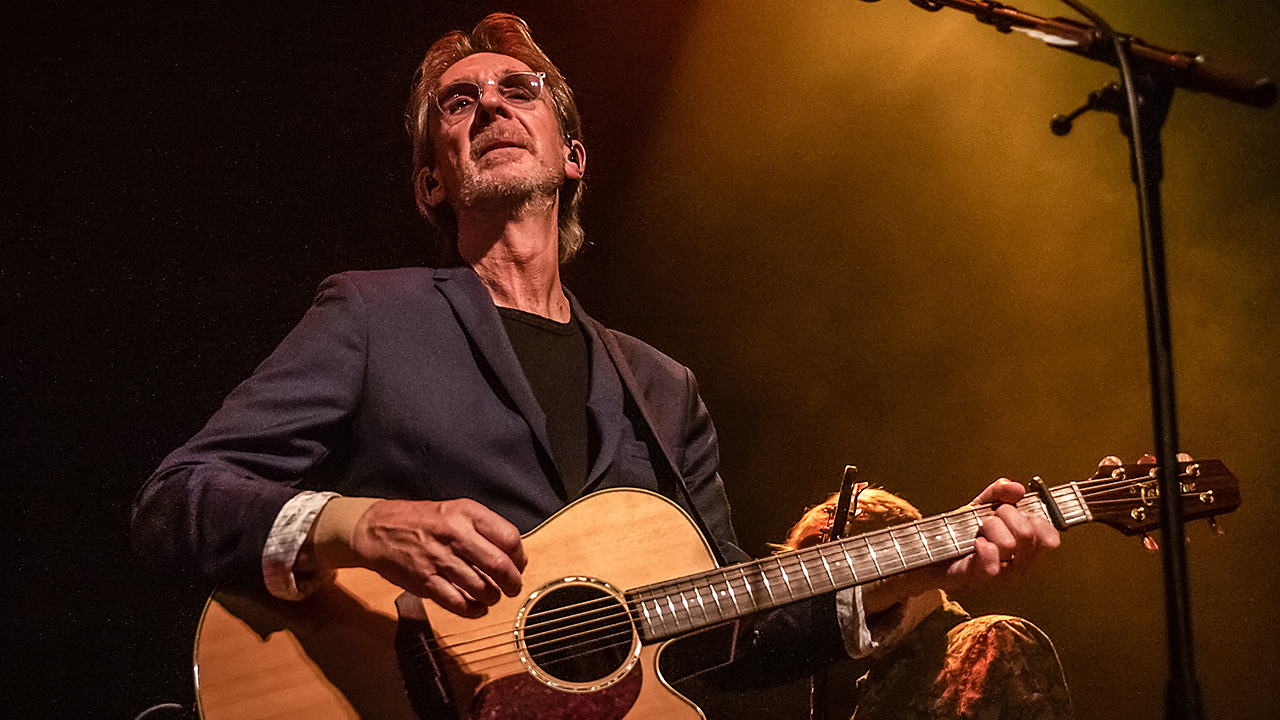"Marillion, Twelfth Night, IQ; to continue to call those bands neo-prog, I don’t see that as particularly positive. Everything has moved quite a lot since then." How Cosmograf defined the sound of Rattrapante
One-man-prog-rock-band Cosmograf returned with their eighth album, Rattrapante, telling Prog, there’s no looking back.

Select the newsletters you’d like to receive. Then, add your email to sign up.
You are now subscribed
Your newsletter sign-up was successful
Want to add more newsletters?

Every Friday
Louder
Louder’s weekly newsletter is jam-packed with the team’s personal highlights from the last seven days, including features, breaking news, reviews and tons of juicy exclusives from the world of alternative music.

Every Friday
Classic Rock
The Classic Rock newsletter is an essential read for the discerning rock fan. Every week we bring you the news, reviews and the very best features and interviews from our extensive archive. Written by rock fans for rock fans.

Every Friday
Metal Hammer
For the last four decades Metal Hammer has been the world’s greatest metal magazine. Created by metalheads for metalheads, ‘Hammer takes you behind the scenes, closer to the action, and nearer to the bands that you love the most.

Every Friday
Prog
The Prog newsletter brings you the very best of Prog Magazine and our website, every Friday. We'll deliver you the very latest news from the Prog universe, informative features and archive material from Prog’s impressive vault.
Although no longer a member of Big Big Train’s live band, Cosmograf''s Robin Armstrong was relishing having his full focus back on Cosmograf when Prog spoke to him about the band's eighth studio album Rattrapante back in 2021.
It was in 2019 that things came grinding to a halt. Robin Armstrong had a choice to make: continue being a live member of eminent prog rockers Big Big Train, to the detriment of his day job project, Cosmograf, or leave the touring life and return to his true musical love.
Armstrong plumped for the latter, and quit the Big Big Train live gig he’d had since the previous year. For every action there’s an opposite reaction, though, and the end result was that he was graced with more time to focus on Cosmograf – and judging by new album Rattrapante, it looks like the multi-instrumentalist and vocalist’s decision has been vindicated.
"The intention to start with was that I was always hoping I could continue both [Big Big Train and Cosmograf],” he reflects down the phone from his home near Portsmouth, on the English south coast. “I think what became apparent was just how demanding it was to rehearse and learn all the new songs that were required to do the Big Big Train set.
“I was struggling to do it all. I was writing much more slowly for Cosmograf, because I was spending so much time rehearsing and learning parts for Big Big Train.”
Since hanging up his …Train boots, Armstrong appears to have been heroically prolific; not only is the admirable Rattrapante in the can – it was released on his own label, Gravity Dream – but its follow-up has already been written.
It’s ironic, as the album title is derived from the French word ‘rattraper’ – to catch up. Its five songs tell tales of time, from nostalgia to achievement, to being immortal.
Sign up below to get the latest from Prog, plus exclusive special offers, direct to your inbox!
“In my main job I’m a watch repairer and I’ve been interested in vintage watches and mechanical watches for many years,” he explains.
“The rattrapante chronograph, it’s like a choreograph with two lap second hands. You can time two events at the same time. So if you imagine a running race, you can use the first chronograph to time the lap time and the second chronograph then times the final finish time. With one or two presses you can time two events within the same race. It’s a bit complicated, but it was inspired by that. So the whole thing about catching up is almost like a metaphor for time.”

While Cosmograf’s previous long-player, Mind Over Depth, edged towards a heavier direction, nodding to the angular motifs of Haken and Porcupine Tree, Armstrong’s latest grabs colour from a more varied palette, including easy-to-consume prog and classic rock.
"The last one was a really interesting album to make,” he reflects. “I had massive fun. All my sort of classic rock aspirations were put into that, being a fan of Black Sabbath, Deep Purple and Porcupine Tree. It had a little bit more of a progressive metal type sound to it, and I think a few people were a little bit worried that was going to be the new heavier direction of what I was doing. But I really don’t like to make the same album twice, so it’s very much the case that I consciously try and make each one different.
"On this one I think the first track [In 1985] gives away my love of bands like Deep Purple and Queen, but the later tracks are probably more varied in terms
of influence.”
The forward-thinking Armstrong says the follow-up to Rattrapante will evoke more classical hues with extra orchestration, and the theme will be more of an archetypal concept record covering a certain period in time.
"I just don’t like to repeat myself,” he continues. “I don’t like the genre boxes that people tend to stick you in. I really do object to the whole neo-prog term that we tend to get lumped into, ever since we started really. Neo-prog to me is… it’s a term that describes the bands that came out in the new wave in the early 80s like Marillion and Twelfth Night and IQ, who are great bands, but to continue to call those sort of bands that play like that neo-prog, I don’t see that as particularly positive. Everything has moved quite a lot since then; people have got a lot more experimental in the prog genre. They’re bringing influences from all over the place now, and all the better for it really."
The steady rise of Cosmograf up the rungs of the prog rock ladder has been a quintessential story of a band gaining steam organically, and sounding increasingly accomplished with each release.
For readers who may not be familiar with the band, the project is Armstrong’s well-nurtured, well-fed baby: he’s the key songwriter and performer, helped along by some guests, and he’s now the man at the helm in the studio, too.
The genesis of the project can be traced back to 2008, when he put together demo material before going on to releasing full albums.
He says the “real change” with Cosmograf, however, came with 2011’s concept album When Age Has Done Its Duty. “I started to realise that I needed much more production help and professional help in getting it sounding as it should be.”
Armstrong drafted in producer Rob Aubrey, who cites Big Big Train and IQ as clients on his CV, and he lent a discerning ear, which helped to smooth out any rough edges.
“He was extremely brutal about it. But he was brilliant, because he told me exactly what I needed to do, and how I needed to improve it.
“As the years have gone by, I’ve got progressively more interested in the production side of it to the stage where around about 2016 I was just doing everything myself. I love the whole studio process, almost as much as writing the songs. It’s my natural environment really.”
While Armstrong’s recent albums have had a slimline production and engineering credit list, playing-wise he’s been helped along by cameos from a plethora of notable musicians including Colin Edwin, Nick Beggs and Nick D’Virgilio.
This time round, on Rattrapante, it’s more of a modest guestlist: Kyle Fenton on drums, additional vocals from The Blackheart Orchestra’s Chrissy Mostyn and voiceover artist Tommy McNally.

One sticking point, however, has been playing live – or not, as the case may be. Despite being active for more than a decade, Cosmograf have only performed in public once, at the Celebr8 Festival in 2014. The decision to remain studio-focused has cut off potential new listeners, and arguably limited Armstrong’s connection with his existing fans.
In a significant move, though, three UK shows as rare as a pig in flight were lined up for last October, but Covid saw them postponed.
“I’ve always resisted the call to gig – I’ve never really been attracted to the process of going out on the road and building an audience that way," Armstrong explains. "I’ve seen quite a few bands try that and not really get anywhere. I thought I’d do it a different way and try and write albums and build as much publicity that way until there came a point where it became impossible to avoid the call. We did the one gig in 2014, and 2020 was the time that we thought, ‘Oh let’s give it a real go on doing a few gigs’, then all this happened. It seems destined that we won’t get out there for some reason."
With such little live experience in the last decade, you would forgive Armstrong for baulking at the prospect of joining Big Big Train’s touring band on keyboards. But he got stuck in, spending hours and hours learning parts and fine-tuning them in rehearsals.
But stepping onto the stage in front of watchful eyes, especially in the early gigs, was often an uncomfortable change of scenery, and a lack of shut-eye on the road was a mental struggle he was starting to lose control over.
"It was frightening," Armstrong concedes. "I can’t lie and say there weren’t some very scary moments at the beginning of the shows. It was a baptism of fire, no doubt about it. Certainly the early gigs it was quite terrifying really to be honest, because I’ve never played that sort of size of audience before.
"Touring I found particularly difficult. I’m not a great person if I can’t sleep. I’d never been exposed to repeatedly gigging night after night, and that became quite difficult, the lack of sleep. We were getting into hotels at three in the morning and getting up at seven or eight for travelling to the next one. The lack of sleep started to take its toll. I was starting to struggle with the mental battle with lack of sleep."
With plans to take Cosmograf on the road in 2020 simmering away, Armstrong eventually found himself at a crossroad.
"Knowing that I had to rehearse for Cosmograf live and carry on the writing process made the decision that I had to give up Big Big Train, which was really sad because it something I really enjoyed doing. They’re great guys to work with."
Although Cosmograf essentially remains a studio project it’s unclear, in an era where playing live and connecting with the audience is increasingly vital to a band’s progression, whether the reach will hit a plateau.
With Armstrong’s self-sufficient, determined attitude, though, Prog wouldn’t bet against the Cosmograf conveyor belt churning on for years to come. And maybe, just maybe, his band will play a venue near you soon.
"There’s still more to go," he says when asked if there are goals left to achieve with Cosmograf. "It’s always frustrating on the audience side of things. It has grown over the years, and I think streaming has really helped to expand the Cosmograf audience.
"The frustrating part is that financially it hasn’t really gone anywhere. It’s an incredibly frustrating business to be in, that success sometimes doesn’t mean that you make any sort of headway financially to build the band.
"To get the next level there’s a need to show people what we can do live. There’s this sort of evolution now ahead I think where eventually Cosmograf will probably end up being a live band. In a similar way to how Steven Wilson has achieved it, in how he will always be a solo artist but when it comes to presenting the music live he’ll have a dedicated band. That’s the sort of way I want to try and get Cosmograf going."
A writer for Prog magazine since 2014, armed with a particular taste for the darker side of rock. The dayjob is local news, so writing about the music on the side keeps things exciting - especially when Chris is based in the wild norths of Scotland. Previous bylines include national newspapers and magazines.

